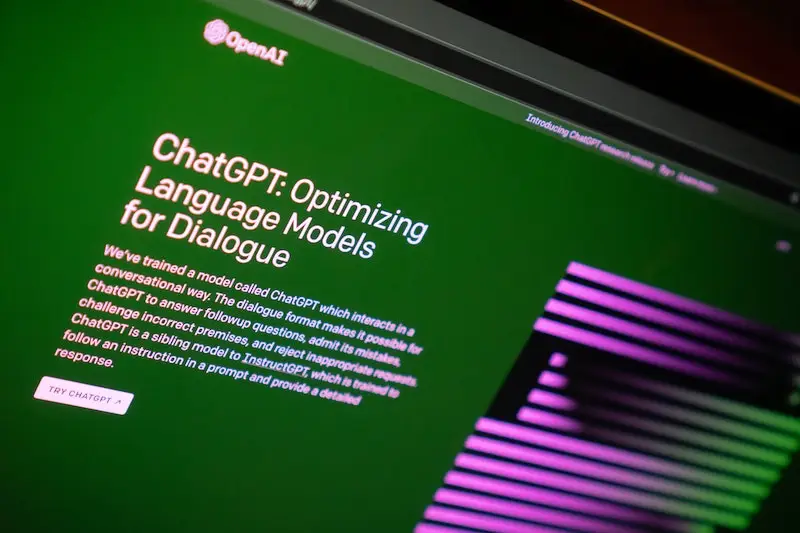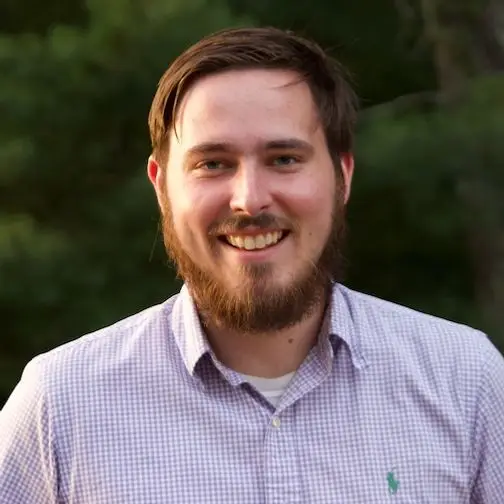Should Students Use ChatGPT to Write School Essays?

If you’ve been living under a rock (or just offline) for the past few months, you may not have heard of ChatGPT. Otherwise, I’m almost positive you’ve heard of it or seen it talked about on some online blog or Youtube channel.
There are a lot of perspectives on the new AI-powered chatbot. So many questions. So many proposed answers.
Our interest in ChatGPT is primarily in regards to its impact on education. After all, Unbound is an education provider. Moreover, we’re an education provider at the forefront of the education revolution and all the changes that have occurred in education (particularly post-high school education) in the last few years.
One of the questions that people have in regards to ChatGPT and education is whether or not the chatbot can be used by high schoolers and college students to automate their academic writing tasks. If you can command ChatGPT to spit out a 500 word essay on the Napoleonic wars, what’s the point of learning how to write said essay on your own?
But wait a minute. We’re getting ahead of ourselves just a bit.
CheatGPT?
There are actually a number of questions/concerns in regard to this “essay” scenario. For example, is it permissible to have a chatbot write your papers for you? Will teachers and academic guides accept such work? Is there even a way to tell if a paper was written by the student over the course of an hour or two or pulled together by a robot within milliseconds?
The future of education in your inbox.
Get productivity tips, commentary, and Unbound updates sent to you!
We’ll focus on the question of permissibility. Is the act of delegating your academic work to a robot “legal”?
Probably, in some sense, the answer is no. This certainly feels like cheating. It feels like, well, using a calculator in math class. But when you think about that, is that really cheating? How many of us draw out complex formulas when we need a quick sum? Maybe the math nerds among us do but the rest of us are happy to utilize that calculator.
So here’s the argument: if we’re okay with using calculators and we’ve come to expect it, why should we fault people for doing the equivalent in English or History class by composing their essays and papers within seconds with ChatGPT?
In response to that argument we have two options:
- We can’t argue! Let them fire up ChatGPT!
- Education carries more weight than we allow it to.
Let’s dig into this second counterargument a bit.
Heavy Education
What does it mean that “education carries more weight”? I mean that when we teach algebra to English majors (or Literature to aspiring engineers) we are not “wasting their time”. (This is coming from the guy who definitely used the “when am I ever going to use this?” contention in high school math studies.)
At Unbound we’re fond of saying that the most important academic skill you can learn in the 21st century is QEMCI, the ability to quickly and effectively master complicated information. Therefore, there is great value in algebra for authors. Algebra breeds critical and analytical thinking (and for some of us, incredible frustration).
We’re also fond of talking about understanding our world, our lives, and the history of the cosmos as a story. Therefore, there is great value in English for engineers. The Liberal arts subjects (literature, history, etc.) hold immense value because they teach how to think, albeit in a different way than higher math does. When examined from a Christian worldview, these subjects form the core of the classical approach to education and contribute important values to students (i.e. what C.S. Lewis terms the tao in The Abolition of Man).
So, perhaps the greatest value of learning algebra is not knowing how to solve for “x” in a particular equation but instead the ability to analyze the key missing piece in a fundraising campaign. Perhaps the greatest value of reading and analyzing Moby Dick is not the amaaazingly page-turning suspense (ahem) but the ability to read symbolism and read the story behind the newspaper story. These are everyday things that we want our growing students to be prepared for. We want to raise them as critical thinkers and discerning Christians. Our educational subjects play an important role in this.
Losing Valuable Lessons
Okay, back to ChatGPT. Education carries more weight than we give it credit for. Therefore, writing a paper on the Napoleonic wars may seem like an utter waste of time to someone who never plans to think another thought about Napoleon. But the very act of writing the essay will teach more than the facts about Napoleon and his battles.
Hence, it is not a matter of ChatGPT eliminating a wasteful chore. It is a matter of ChatGPT eliminating a crucial training ground for logical thinking, rhetoric, and narrative communication. Whatever you may hear from the internet experts, human communication isn’t going to go out of business due to ChatGPT anytime soon. It’s a core, irreplaceable part of the human experience. If you doubt me, just look at the epidemic loneliness, anxiety, and despair that has accompanied the rise of social media technologies (another topic for another day). Screens, robots, and artificial intelligences can’t replace human relationships. And even if they could, I don’t think we would be any better off for it.
Communication is taught through a variety of methods. But writing is a particularly effective one. You must write an introduction. Then come your classic three points. Finally, you conclude with a conclusion (how appropriate). This may seem elementary but the ability to write a coherent essay is incredibly important in developing adult communication abilities. It is important in learning how to structure thought.
Creativity and Pressure
Anybody can ask a chatbot to spit out an essay just like anyone can ask Google any number of details about the Napoleonic wars or the answer to a puzzling algebraic problem. The point here is that a society of Google-askers and ChatGPT-delegators is not the goal.
Some will argue that AI like ChatGPT frees humanity from chores that can be automated so that we can focus on things like art and creative projects. (We won’t mention the recent foray AI has made into making art.) However, my counter to this argument would be to ask: if we keep delegating anything and everything we can to robots, how will we develop the creativity necessary to make art?
Years ago, one of the student keynote speakers at APEX made the insightful point that creativity is developed in situations of limitation and pressure. In other words, to apply this to our topic at hand, creativity is forged when your 9th-grader is sitting slumped over the desk in front of a blank word document and a taunting cursor. When they’ve pushed through the “writer’s block” and finally submitted that annoying essay, they probably won’t think about the battle of Waterloo again. But they’ll have learned an important lesson in creativity, problem solving, resilience, and persistence. A lesson that would be stripped from them if they had gotten their old buddy ChatGPT to do the dirty work for them.
A Bit of Realism
Of course, we have to be realistic: ChatGPT and other AI tools like it will be used increasingly. We don’t want to ironically prevent practical knowledge of modern tools in the name of “education”. After all, at Unbound, we’re very aware of the way the world is changing and how education must be adapted to prepare students for the real world as it actually is. But we are also realistic about the tendency to let technology “dumb us down”.
So, I’m not against using ChatGPT to write for you in some cases. This isn’t some anti-technology rant. However, I am interested in encouraging students to use tools like ChatGPT in such a way that they gain value while avoiding the loss of important learning.
Besides, with recent reports of dubious assertions from ChatGPT, the need for critical thinking never expires.
Ascend is Unbound’s project-based education program for students 16 and up. Ascend challenges students to grow real-world skills and experience through personal projects, Christian community, and advanced leadership training. Schedule a free consultation to learn more and find out if your student is eligible.



